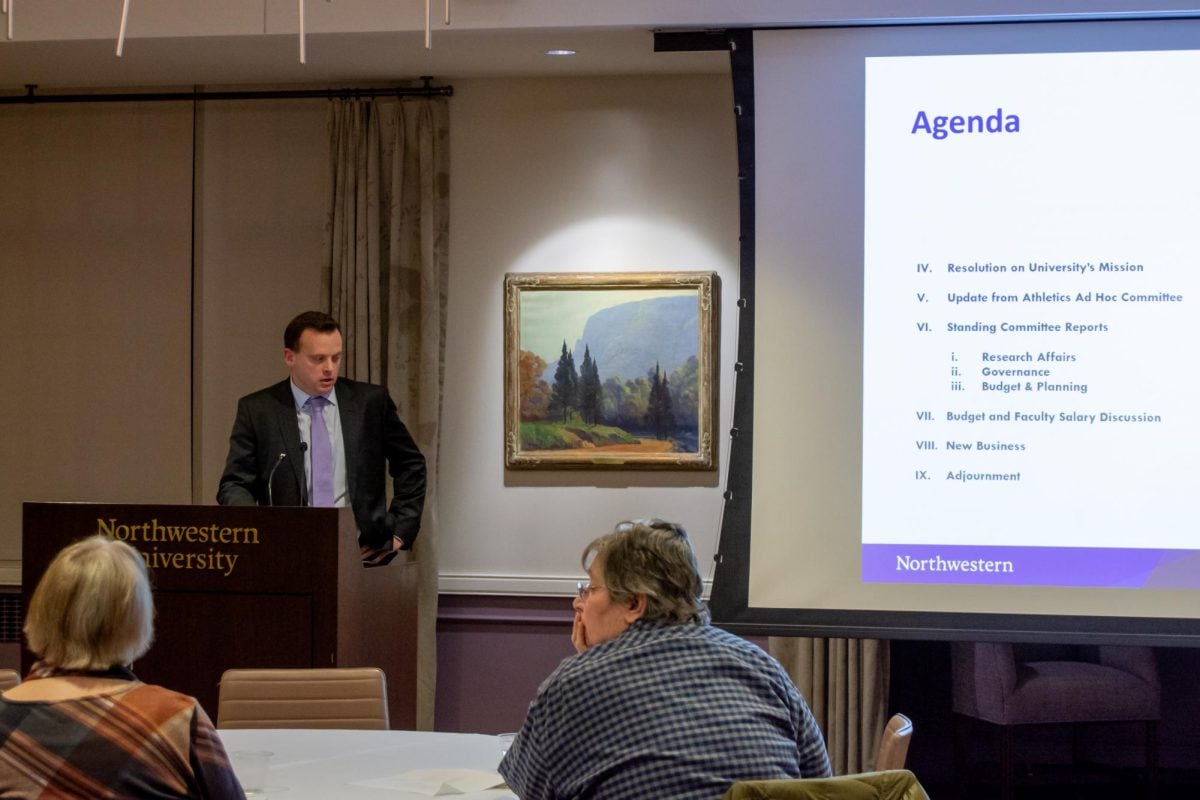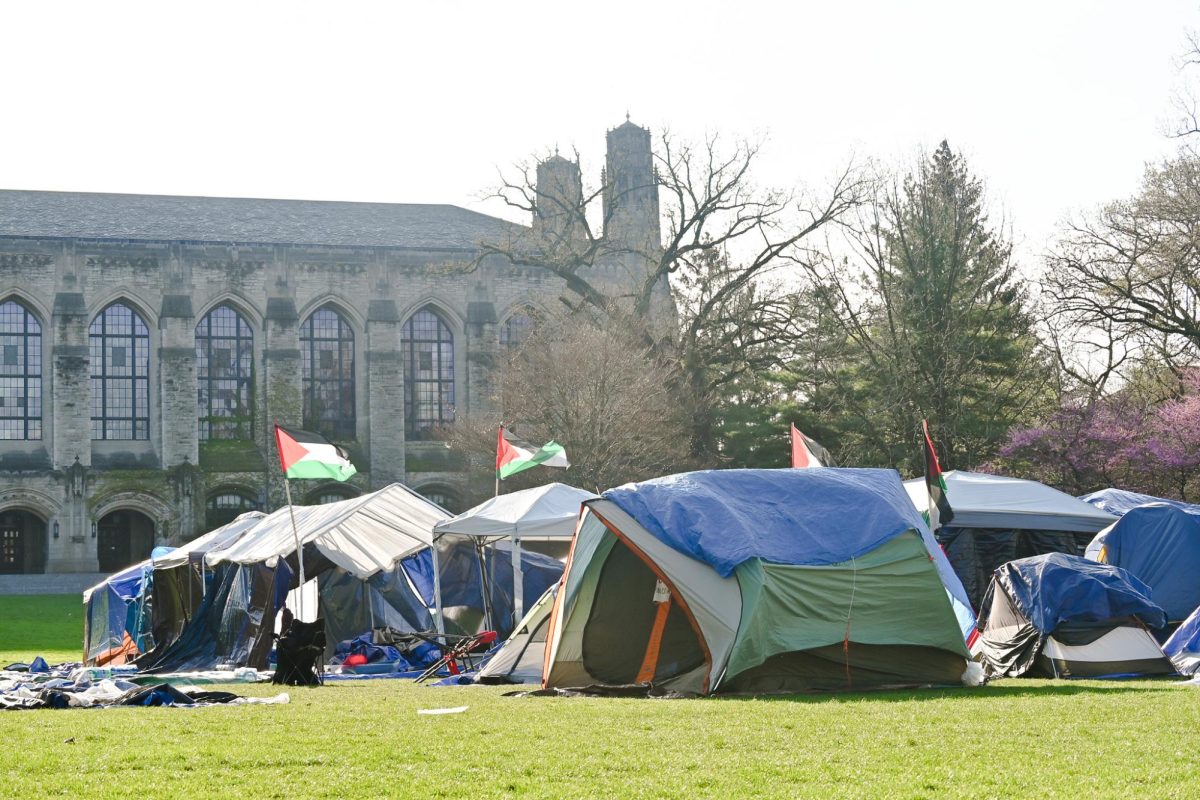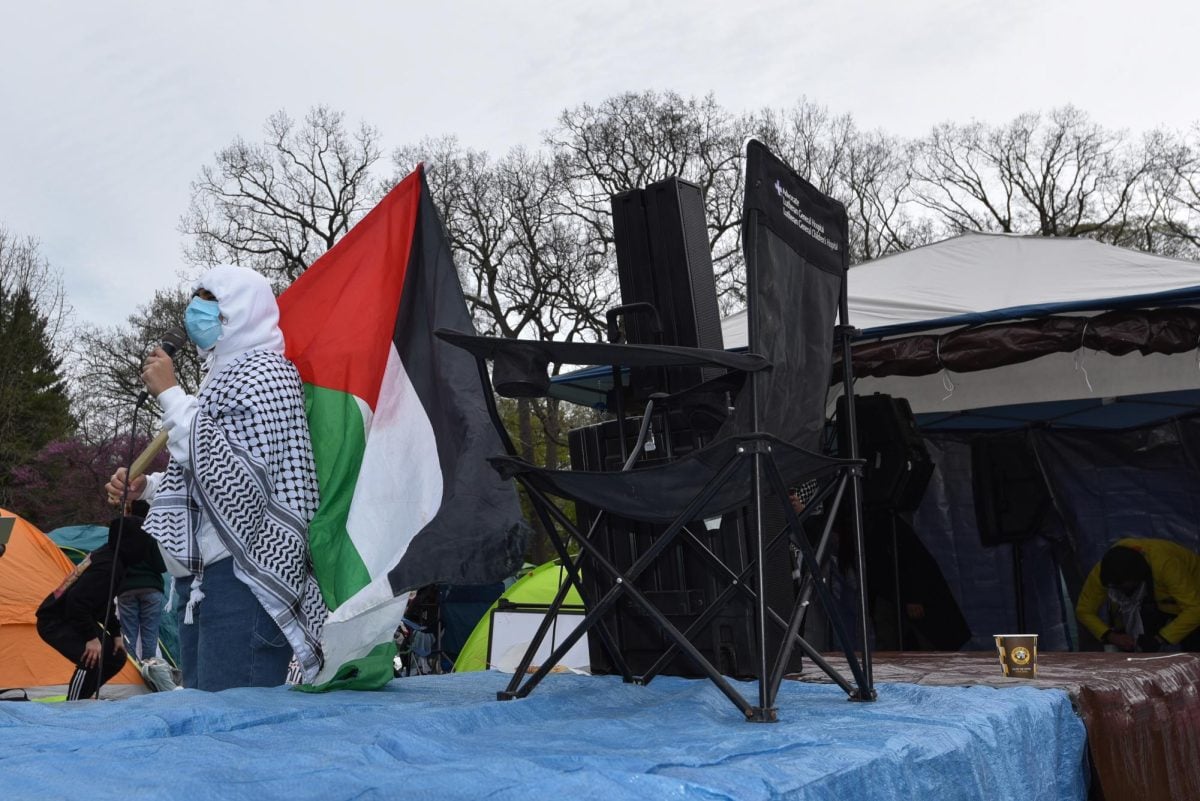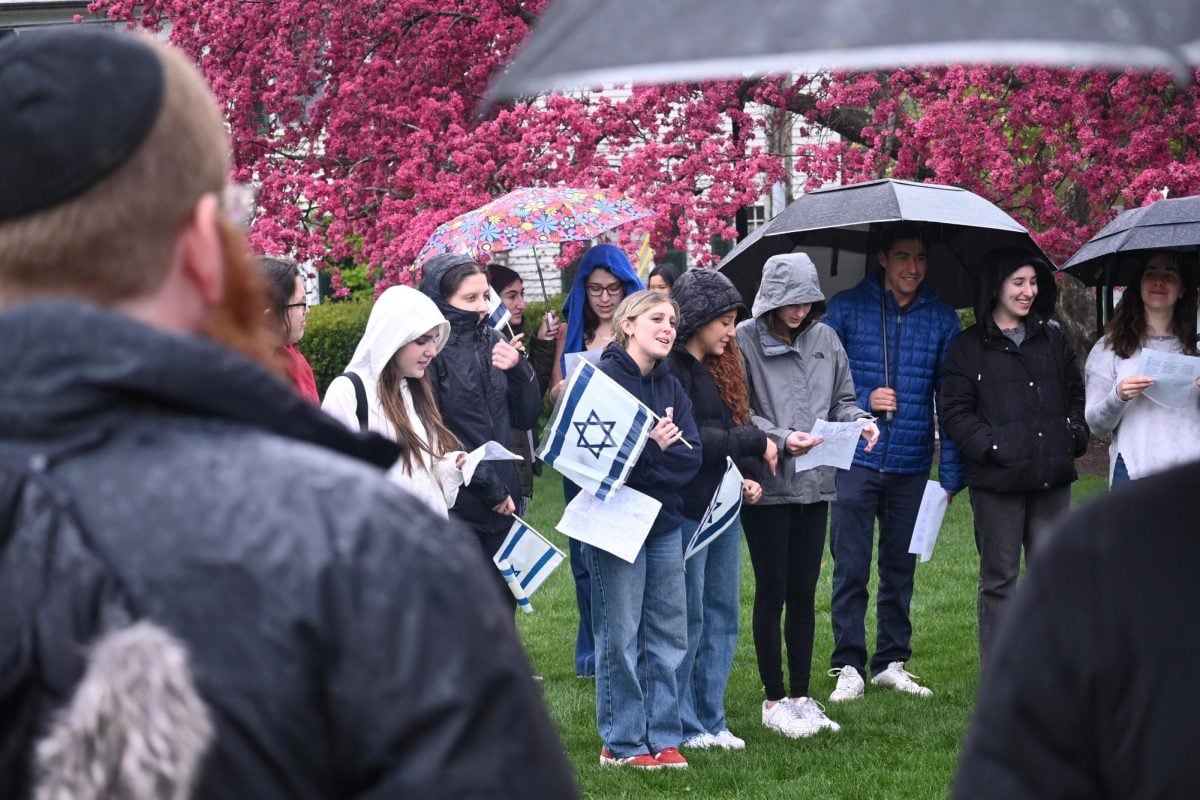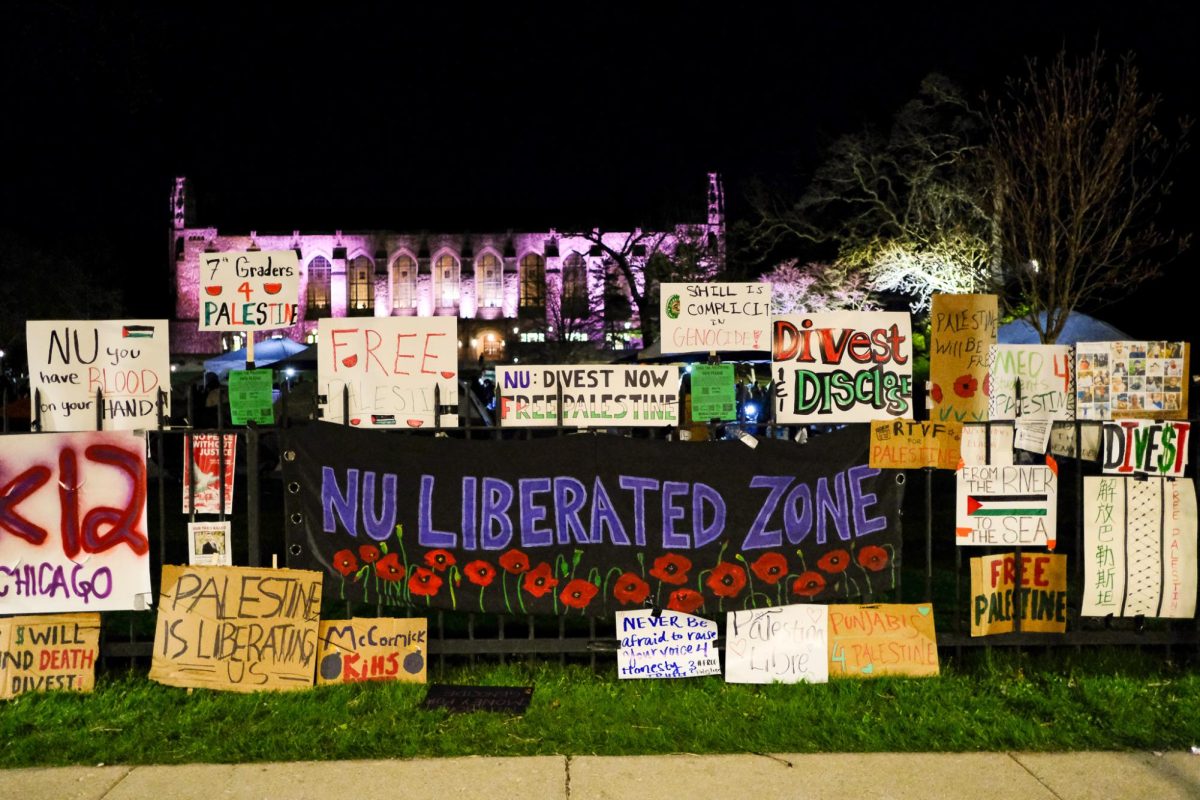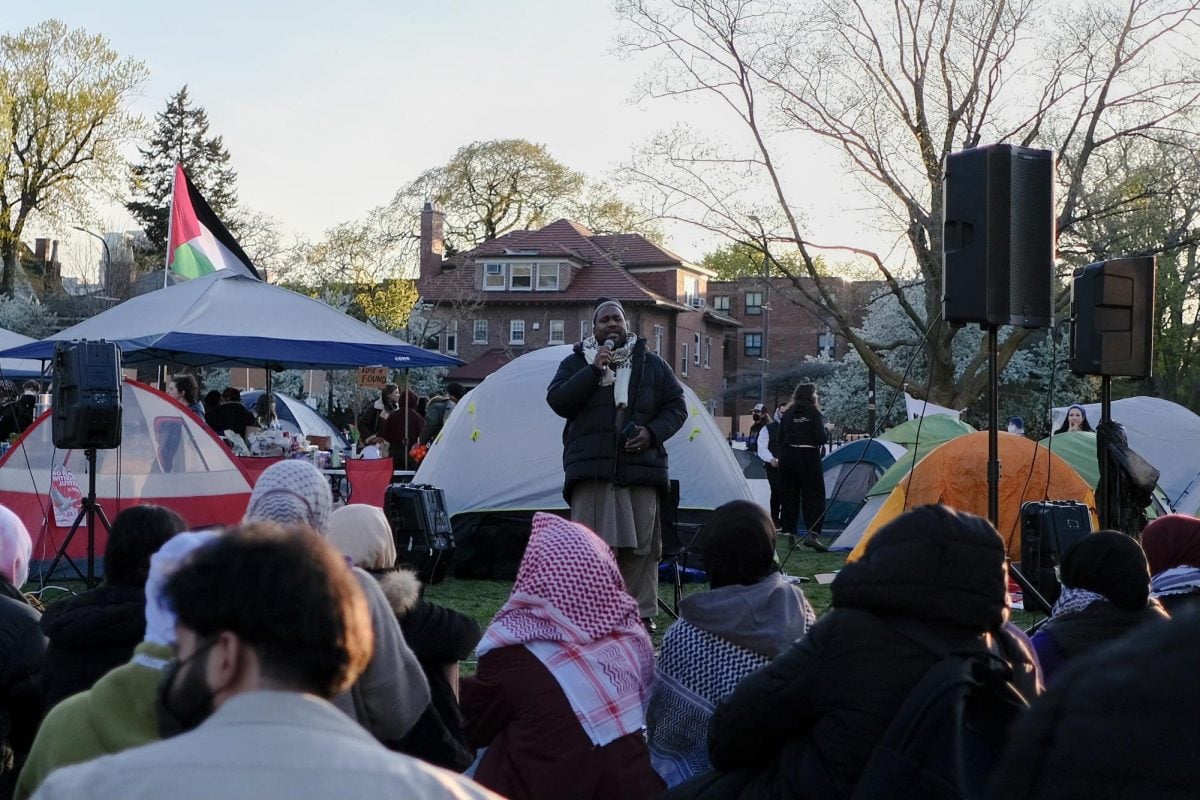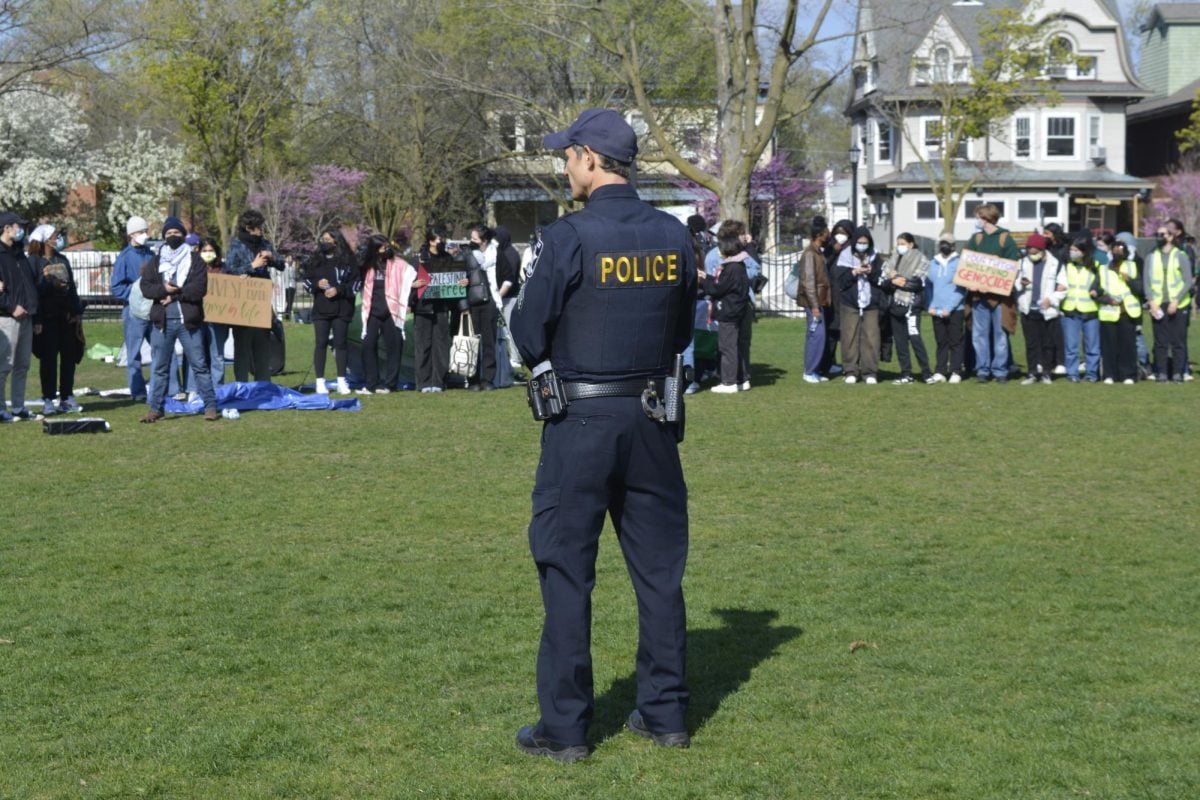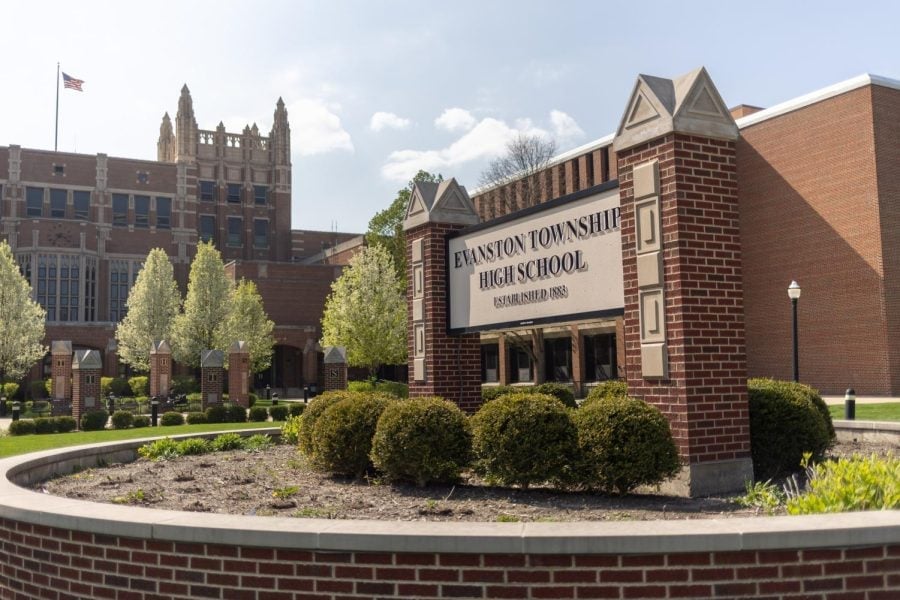Luke Figora, Northwestern’s chief operating officer, addressed funding questions related to the University’s Rebuild Ryan Field project at a Faculty Senate meeting Wednesday evening.
The Q&A session came after more than 200 faculty members signed a resolution in late October demanding Northwestern administrators answer their questions regarding how the University will fund the new field. On Monday, Evanston’s City Council tabled three ordinances related to the stadium’s construction until a special meeting on Nov. 20.
In the October resolution, faculty questioned where the University would get its funding for the project outside of a $480 million gift from Patrick Ryan (Kellogg ’59) and Shirley Ryan (Weinberg ’61).
Figora said the $800 million price tag is “significantly larger than” what the University initially expected, but that most of it will be financed by the Ryan family gift, which he said has “significantly increased” since the original announcement. The family does not want the exact amount they’re giving made public, Figora said, but they will contribute the “vast majority” of philanthropic contributions.
Two other major revenue streams will fund the operation, Figora said. $124 million will come from a University commitment, and the stadium will need to incur about $78 million in debt, which the athletics department will pay for through stadium operations. The stadium will cost about $5 million in debt servicing each year, he added, and money will also be put aside to avoid deferred maintenance.
Nevertheless, faculty members including McCormick Prof. Mark Johnson expressed concern that part of the original $480 million gift was going to go toward research, and that the University will have to contribute large sums of money to Evanston community benefits. The University has pledged about $175 million, estimated with inflation adjustments, according to Ald. Devon Reid (8th) — and will also have to address the fallout of NU Football’s hazing scandal, which Sports Illustrated estimates will cost the University about $165 million.
The project is estimated to take 30 months, he added.
“All along the philosophy has been that that stadium needs to be self-supporting within athletics,” Figora said. “(The philosophy) is revenue streams that offset the expenses associated with that and operate within that stadium (should be) within the overall athletics department.”
He said he was unequipped to answer questions about the University’s response to the hazing allegations, but added NU had not attached a specific price tag to the community benefits agreement. “Certain councilmembers may have come to their own math” on it, he said.
Economics Prof. Mark Witte said he’s concerned the stadium might have a negative impact on women’s athletics, football operations, faculty salaries and the construction of a new sociology building, among other things.
“Hopefully this works well, but I imagine if it doesn’t, we’ll look back and say we built the most expensive football stadium ever and that it was going to have a cost of $18 million a year, $5 million debt service, $3 million of maintenance and $10 million to Evanston, requiring … remarkable revenues from concerts and luxury boxes and sponsorships,” he said. “And ex post we’ll be like, ‘What the hell were we thinking?’”
Witte asked for clarification on both upfront costs and long-term sustainability. Figora listed a few University safeguards that intend to prevent risk in both categories and emphasized the athletics department will self-support the new stadium through different revenue streams including tickets and concessions.
The University is using a construction manager at-risk to minimize cost escalations for the project, but Figora added he feels “pretty good” about the University’s commitment to the project, even if it runs over budget.
In the event the athletics department cannot finance the stadium’s year-to-year expenses, Figora said it will have to make allocation decisions.
After Figora’s question and answer session concluded, Kellogg Prof. Therese McGuire, who chairs the Faculty Senate’s budget and planning committee, proposed a committee-approved resolution to ensure the building and maintenance of the new football stadium does not deter the University’s ability to maintain and enhance its academic mission.
Senate members passed the resolution with a few minor amendments, though some members opposed it. Its purpose is to establish a record to hold the University accountable to faculty demands, McGuire said.
“[We wanted] to go on the record that we know and believe in our mission,” McGuire said. “We wanted to go on record that we’ve had a recent history of financial crises impacting our mission and wanted to go on record that we’re holding the central administration and the Board (of) Trustees accountable for whatever financial implications a new stadium might have for us.”
The Senate’s Athletics Ad-Hoc Committee also provided updates on identifying the role of faculty oversight in athletics and advocating for the safety and well-being of student-athletes. The committee is in the initial meeting and research stages with the faculty, according to McCormick Prof. Jill Wilson, a committee member.
The next faculty senate meeting will take place on Jan. 10.
Email: [email protected]
Twitter: @joannah_11
Related Stories
— City Council tables Rebuild Ryan Field approval, introduces 2024 budget
— Faculty Senate hears from University President Michael Schill, considers Ryan Field rebuild

